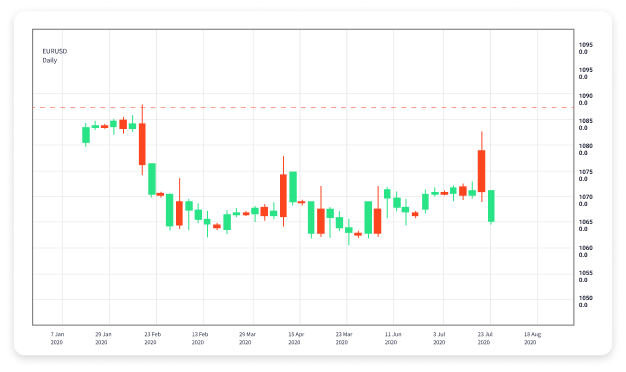
Forex trading has gained immense popularity over the years, with millions of traders globally looking to capitalize on currency fluctuations. However, with this surge in interest arises the necessity for regulatory measures and compliance to ensure fair trading practices. One of the critical aspects of Forex trading is the requirement for a Forex trading license. Understanding what a Forex trading license is and why it is essential is crucial for anyone looking to enter the trading world. For comprehensive insights into Forex trading and regulations, visit forex trading license trading-cambodia.com.
What is a Forex Trading License?
A Forex trading license is a legal authorization granted by a regulatory authority that allows individuals or firms to operate as Forex brokers. This license not only signifies that the broker adheres to specific standards of operation but also provides a level of security and trust for the traders. Obtaining a Forex trading license requires compliance with various regulations and standards set forth by the governing bodies of the financial markets.
The Benefits of a Forex Trading License
Having a Forex trading license offers numerous benefits to brokers and traders alike. Here are some of the primary advantages:
- Regulatory Compliance: Licensed brokers are mandated to follow strict guidelines and regulations, ensuring fair trading practices. This compliance helps maintain a stable trading environment.
- Trader Confidence: A licensed broker instills trust among traders, assuring them that the broker operates under a legal framework. This trust is essential for attracting clients and maintaining a loyal customer base.
- Access to Financial Markets: With a Forex trading license, brokers can access various financial markets and provide their clients with a wide range of trading options.
- Enhanced Reputation: Licensed brokers typically enjoy a better reputation in the Forex trading community. This reputation can lead to increased business opportunities and partnerships.

Types of Forex Trading Licenses
Forex trading licenses vary depending on the regulatory authority and the region in which the broker operates. Some of the most recognized jurisdictions for obtaining a Forex trading license include:
- United Kingdom: The Financial Conduct Authority (FCA) oversees Forex trading in the UK, ensuring that brokers comply with stringent regulations.
- Cyprus: The Cyprus Securities and Exchange Commission (CySEC) is responsible for regulating Forex brokers in Cyprus, making it a popular choice due to its favorable tax regime.
- Australia: The Australian Securities and Investments Commission (ASIC) regulates Forex trading in Australia, known for its transparent and rigorous regulatory framework.
- Belize: The International Financial Services Commission (IFSC) oversees Forex trading in Belize. While it has less stringent requirements, it remains a popular choice for many brokers.
- Saint Vincent and the Grenadines: Many brokers operate without stringent regulations in this jurisdiction, although this may pose risks for traders.
How to Obtain a Forex Trading License
The process of obtaining a Forex trading license can vary significantly based on the jurisdiction. Here is a generalized overview of the steps involved in acquiring a Forex trading license:
- Choose a Jurisdiction: Select an appropriate regulatory authority based on factors such as taxation, compliance costs, and reputational considerations.
- Prepare Documentation: Gather all necessary documentation, including business plans, proof of identity, and financial statements.
- Meet Capital Requirements: Most regulatory authorities require brokers to have a certain amount of capital in reserve before granting a license.
- Submit Application: Complete the application process by submitting the required documents and fees to the chosen regulatory body.
- Compliance Audits: Some regulators may require periodic audits to ensure compliance with operational and financial standards.
- Receive License: Once all requirements are met, the regulatory body will issue a Forex trading license.
Challenges in Obtaining a Forex Trading License

While obtaining a Forex trading license is beneficial, it can also present numerous challenges:
- Lengthy Application Process: The application process may be time-consuming, involving extensive documentation and scrutiny from regulatory bodies.
- High Costs: Acquiring a Forex trading license can be expensive due to application fees, regulatory compliance costs, and capital requirements.
- Ongoing Compliance: Licensed brokers must continually comply with regulatory standards, which can require significant resources and expertise.
Forex Trading License vs. Unlicensed Brokers
Choosing between licensed and unlicensed brokers is a critical decision for traders. While unlicensed brokers may offer attractive trading conditions such as lower fees or higher leverage options, they also pose significant risks:
- Lack of Protections: Unlicensed brokers do not adhere to regulatory standards, making it challenging for traders to seek recourse in disputes or issues that arise.
- Higher Risk of Fraud: Unlicensed firms may engage in fraudulent practices, leading to potential loss of funds for traders.
- Poor Reputation: Unlicensed brokers often operate without transparency and may have poor standings in trading communities.
Conclusion
In conclusion, the importance of a Forex trading license cannot be overstated. It not only legitimizes the broker’s operations but also provides essential protections and assurance to traders. As financial markets continue to evolve, compliance with regulations will remain a critical aspect of Forex trading. For those considering entering this dynamic market, understanding the significance of a Forex trading license is paramount to ensure a secure and trustworthy trading experience.



